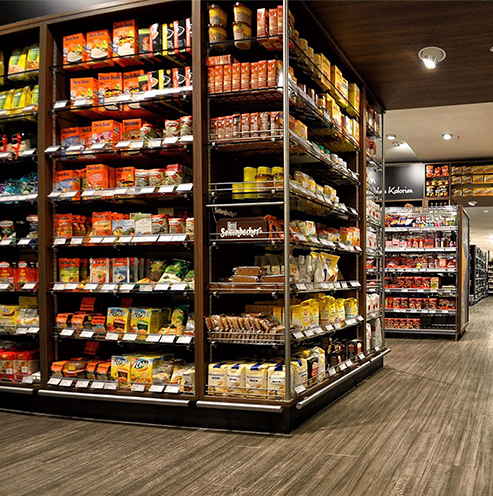bale wrap 750mm
The Importance of Bale Wrap A Focus on 750mm Width
Bale wrapping is an essential practice in modern agriculture, particularly for farmers who need to preserve forage and silage. Among the various options available, 750mm bale wrap has become a go-to choice for many, thanks to its versatility and effectiveness. In this article, we explore the significance of bale wrap, the benefits of the 750mm width, and its impact on agricultural practices.
Understanding Bale Wrap
Bale wrap is a type of agricultural film used to enclose and protect bales of grass, hay, or silage. Its primary purpose is to create an anaerobic environment inside the wrapped bale, which is crucial for the fermentation process. When done correctly, this process helps preserve the nutrients in the forage, thereby maintaining its quality for animal feed.
The wrapping process involves using specialized equipment to encase the bale in several layers of stretch film. This ensures that air is kept out while also providing a protective barrier against environmental elements such as rain, snow, and UV rays. The result is a stable and nutritious feed source that can be stored for months, even years, without significant losses in quality.
The Case for 750mm Bale Wrap
One of the most popular choices in bale wrapping is the 750mm wide film. This width strikes a balance between coverage and efficiency, making it an ideal option for various bale sizes. Here are some key reasons why 750mm bale wrap is favored in the agricultural sector
1. Optimized Coverage The 750mm width provides ample coverage for standard round and square bales. It allows for a sufficient overlap during the wrapping process, ensuring that no gaps are left for air to enter. This minimizes the risk of spoilage and maximizes the preservation of feed quality.
2. Efficient Handling The 750mm roll size is easy to handle, transport, and store. Farmers can quickly load and unload rolls without much hassle, which is especially beneficial during the busy harvesting season. Moreover, this width is compatible with many wrapping machines, offering flexibility in equipment choices.
bale wrap 750mm

3. Cost-Effectiveness When considering both the price and the usage of the wrap, 750mm bale wrap often proves to be a cost-effective solution. Its efficient design reduces material waste while still delivering excellent protection for the bales. Farmers can take advantage of economies of scale, particularly when wrapping large quantities of forage.
4. Enhanced Protection The use of high-quality materials in 750mm bale wrap provides a robust and durable protective layer. This added strength guards against tears, punctures, and UV degradation. Bales wrapped in high-quality 750mm film have a better chance of withstanding harsh weather conditions, which is crucial for maintaining feed quality.
5. Promotes Sustainable Practices As agriculture increasingly focuses on sustainability, using efficient materials like the 750mm bale wrap helps reduce environmental impact. By limiting spoilage and maximizing the use of feed, farmers can practice more sustainable operations, conserving resources and reducing waste.
Implementing Best Practices
To maximize the benefits of 750mm bale wrap, farmers should follow best practices during the wrapping process. Ensuring bales are dry and clean before wrapping is crucial, as moisture content significantly affects the fermentation process. Properly adjusting the tension on the wrapping machine is also vital to avoid over or under-wrapping, which can lead to inefficient storage and spoilage.
Furthermore, storing wrapped bales in a shaded, dry area will protect them from sun damage and moisture infiltration. This allows the benefits of the 750mm wrap to be fully realized, resulting in high-quality feed that keeps livestock healthy and productive.
Conclusion
In conclusion, 750mm bale wrap represents a smart investment for farmers looking to preserve their forage and silage effectively. Its optimized coverage, ease of handling, cost-effectiveness, enhanced protection, and contribution to sustainable practices make it an essential tool in modern agriculture. By implementing best practices for wrapping and storage, farmers can ensure their livestock have access to the best quality feed, ultimately contributing to the success and sustainability of their farming operations. Whether you are a seasoned farmer or just starting in the agricultural sector, considering 750mm bale wrap could be a game changer for your forage management strategy.
-
The Best Uses for Small Trash Bags in Daily LifeNewsJul.01,2025
-
Stylish Reusable Grocery Bags TrendsNewsJul.01,2025
-
Shipping Advantages of Using Bubble Envelopes BulkNewsJul.01,2025
-
How Compostable Mailing Bags Reduce Environmental ImpactNewsJul.01,2025
-
Environmentally - Friendly Bulk Poly MailersNewsJul.01,2025
-
Eco Friendly Custom Laminated Tote BagsNewsJul.01,2025
-
Have the freedom of customizing your custom mailers any way you want! Our dedicated packaging support will help deliver you the mailing experience you need to elevate your shipping experience to the next level! Start making a strong impression on your customers and stand out from your competitors! -
LIYA uses high quality raw materials which directly purchased from large enterprises domestic and overseas such as PetroChina, Sinopec, Sabic, Equate, ExxonMobil, Dow Chemical, Total, and Borouge, ensuring the price advantage and quality of the raw materials. -
LIYA uses high quality raw materials which directly purchased from large enterprises domestic and overseas such as PetroChina, Sinopec, Sabic, Equate, ExxonMobil, Dow Chemical, Total, and Borouge, ensuring the price advantage and quality of the raw materials.





